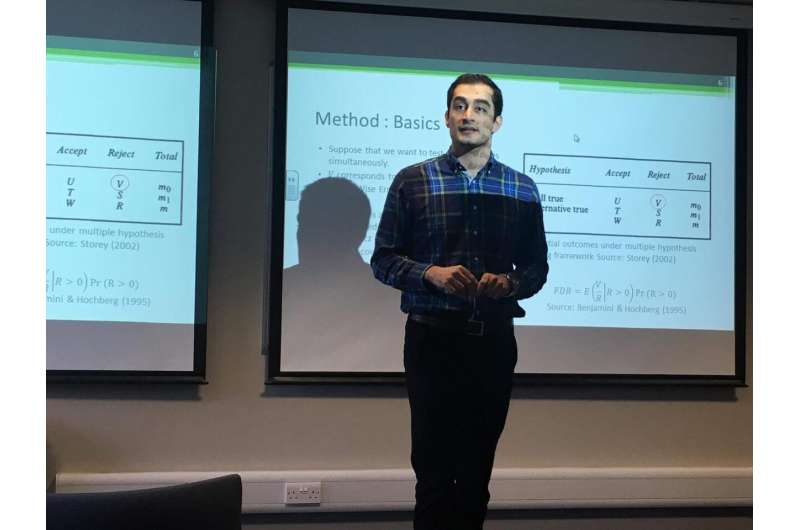Algorithm to transform investment banking with higher returns

A University of Bath researcher has created an algorithm which aims to remove the elements of chance, bias or emotion from investment banking decisions, a development which has the potential to reduce errors in financial decision making and improve financial returns in global markets.
"There is a global race to find a viable solution to create more reliable—and better performing—investment decisions in financial trading. Our model offers consistently higher returns compared to others developed to date," says Dr. Arman Hassanniakalager of the university's School of Management.
Hassanniakalager, who will present the research at the Financial Management Association conference in Glasgow this week, says his model has been shown to result in a 3% higher return than the benchmark U.S. Federal Reserve Funds rate, based on evidence from 12 stock market indices from around the globe. An improvement of 0.5-1.0% would be regarded as significant.
The search for an all-powerful investment algorithm has stepped up in recent years and early results have been mixed. The challenge is to create a level of reliability that consistently outperforms investment bankers and financiers and a tool that can function equally well in rising and falling markets.
The continued development of algorithms and their perceived benefits are raising hopes and optimism among many in the markets. But the increasing reliance on the tools has also created some nervousness in the top tiers of the world's financial systems—and some scepticism from those who believe there will always be a role for the inspired human touch.
Hassanniakalager, whose expertise is in developing novel artificial intelligence and statistical methods for financial decision making, said his algorithm has reached the point where it is consistently outperforming both conventional methods of investment and algorithmic tools.
"There is a lot of theoretical thinking and aspirations around about such investment tools but the key question is solving how to make them work in the real world. We think we have addressed that question," Hassanniakalager said.
The algorithm can be linked to artificial intelligence, which will learn from investment decisions and fine-tune itself automatically. He envisages a black-box solution for investment managers who will be able to run complex alternative investment scenarios in real time.
The primary use would be in trading rooms, in particular in the technical analysis field, assessing how stock markets react to company news or in gauging the performance of derivative instruments and offering different investment paths to managers.
The tool will change the decision-making process and potentially the market landscape itself—the days of multiple screens in trading rooms and managers seeking to make sense of an increasingly complex multitude of real-time and historic data may be numbered.
There may even be a question mark over the future of decision-makers themselves.
"Whoever succeeds in this has the potential to transform financial markets and particularly investment banking and equities trading. There will be winners and losers—it isn't hard to imagine the radical impact on employment at the highest banking levels if investment decisions are increasingly automated," Hassanniakalager says.
The algorithm, which Hassanniakalager describes as universal, may have applications beyond financial markets. "If you learn what is changing statistically, you can apply that to other fields, such as genetics. That's the beauty of statistics," he says.
Hassanniakalager will present the findings of the research team, which includes academics from the Universities of Glasgow and St Andrews, on Friday 14 June at the FMA International conference at the University of Strathclyde.
Provided by University of Bath


















